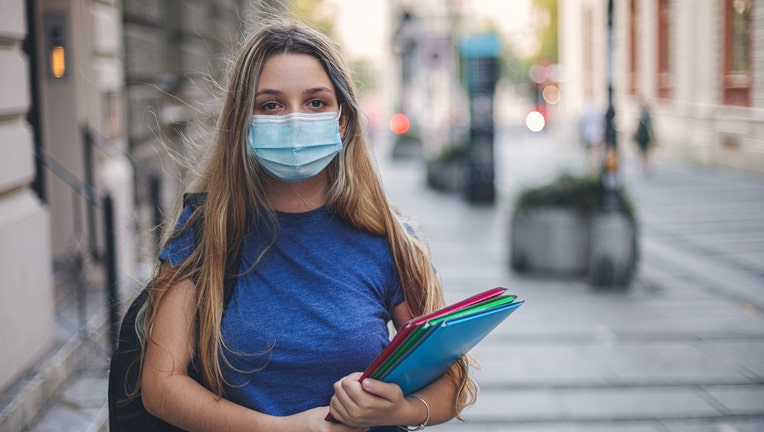Why fewer borrowers are repaying student loans during coronavirus

Very few borrowers are repaying federal student loans during coronavirus. While there are some good reasons why, there are also some downsides to delaying payment.
Just 11% of borrowers are currently repaying federal student loans during coronavirus, according to an analysis by Mark Kantrowitz, a student loan expert, and publisher of Saving For College.
Borrowers have paused payments for many reasons and, in some cases, it's the right course of action. But not every type of student loan is eligible for automatic forbearance, and there are both pros and cons to consider before discontinuing student loan payments.
Why are so few borrowers repaying loans during COVID?
Millions of borrowers with federal student loans have stopped paying those loans during coronavirus for one simple reason: They are no longer obligated to do so. As part of its coronavirus relief efforts, the federal government has put all federal student loans into administrative forbearance until December 31.
If you have private student loans, consider a refinance to lower monthly payments, and cut the life of your loan. Use Credible to shop refinance rates across multiple private lenders. Browse loan products, loan repayment plans, and more on their multi-lender marketplace.
WHAT THE CARES ACT MEANS FOR YOUR STUDENT LOANS
Not only have student loan payments been suspended — first by the CARES Act and then by an executive order from the president — but interest has also been suspended as well. That means those who have loans from the Department of Education can stop making their monthly payments without any financial consequences and their loan balance won't grow.
Many borrowers who were previously struggling to manage student loan payments view this automatic forbearance as a reprieve from high monthly bills, which has allowed them to work less or to redirect their limited funds to other priorities.
Some former students with educational debt, who have been left unemployed by COVID-19, are also choosing to opt-out of paying student loan debt when they don't have to. And others, whose jobs have remained unaffected, are still skipping payments to prioritize other financial goals such as paying off other debt that has a higher interest rate.
SECOND STIMULUS CHECKS, STUDENT LOANS & MORE FAQ DURING COVID
Should you continue making private loan payments now?
Unlike federal student loans, there is no automatic administrative forbearance if you have private student loans. Many lenders are willing to work with you to pause payments by putting loans into forbearance if you contact them and explain you are experiencing financial hardship. However, this is an option at the discretion of your lender only.
If your private student loan lender does allow you to pause payments, interest will not stop accruing — unlike with federal student loans. During the entire time, your payments are paused, your lender will continue charging interest so you'll end up with a larger balance to repay.
You do not want to raise your total borrowing costs by pausing payments on private loans and raising your outstanding balance unless doing so is an absolute last resort. Instead, you should aim to continue paying your private loans on schedule.
If you're concerned about the monthly cost of your private loans because your job has been affected by coronavirus or because you fear economic chaos caused by the virus could put you at risk, you should consider taking some steps to reduce your interest rate and monthly payment. Refinancing your private loans could be the best, and often the only, option, especially at today's current record low rates.
Credible can help you to determine if refinancing your student loans is an affordable proposition for you. You can visit Credible to compare student loan refinancing rates from multiple lenders without affecting your credit score.
4 THINGS TO DO BEFORE STUDENT LOAN FORBEARANCE ENDS
And if you're approved for a loan, you can use Credible's student loan refinancing calculator to see what your new monthly payment could be if you secure a refinance loan and drop your current loan rates.
Should you pay off federal student loans during COVID?
While borrowers don't currently have to make payments on federal student loans, there are pros and cons to taking advantage of administrative forbearance.
The biggest benefit is that you can use the money for other things without worrying about the balance on your loans growing. If you have high-interest credit card debt to pay or are behind on retirement savings, you can seize this opportunity to get caught up.
The downside, however, is that you'll delay the time when you become free of your student debt. You're also giving up the opportunity to make payments that would go only to the principal. If you choose to pay your monthly bill now while interest is suspended, your entire payment would be used to reduce your balance. This could shorten your payoff timeline and reduce total interest costs.

